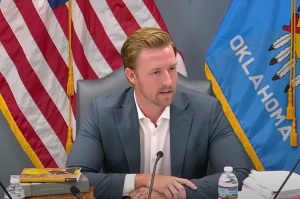One Key to Successful Preaching – Become a Collector
One of the most helpful habits you can develop as a preacher is to become a collector. I've been a "collector" for years, and it has made my preaching much more effective. I'm not talking about a hobby. I'm talking about constantly being on the lookout for items that can be helpful for your messages.
I start by collecting Bible verses. Even when I preach on a single text, I still want to know all God has said about the subject. I want to know the verses that have mentioned the topic – and the context to those verses. That'll help me present the message in a way that keeps the whole of Scripture in mind.
But how do you find relevant Bible verses? You can start by developing the habit of memorizing God's Word. I cannot tell you how many times the Holy Spirit just brings a verse to mind as I've been thinking about a topic or writing a sermon. If I hadn't spent years of studying and memorizing, I couldn't do that. The more Scripture you memorize, the easier it will get to prepare messages.
Next, make a list of all the words related to your subject. Years before I wrote The Purpose Driven Life, I did a series of messages on living a purpose driven life. I had studied more than a thousand verses and collected them in a binder before I even preached the first message in that series. That took an enormous amount of time, but it gave the series depth. Today, software is an incredible timesaver. In years past, you had to lay out all of your concordances and painstakingly take the time to look at each one, but you don't have to do that anymore. I recommend WordSearch and Logos. Both are very good software programs for doing this. This software will save you hours and hours.
But Bible verses aren't all I collect in this stage of sermon preparation. I also collect quotes, articles, books – and even comment cards that are handed in on the weekends – on topics I may someday preach on. I'm always looking for these items. I'm constantly reading and constantly keeping my eyes open for items that can help illustrate a biblical message.
You can file all of these items in what is called a bucket file. Just go down to Wal-Mart, Target, or K-Mart and buy some letter-size plastic buckets. As you find items that would be great for a message, just write the possible topic on the corner. It doesn't even have to be categorized. Your personality will determine how organized your bucket file is and how you set it up. Don't stress out if you're disorganized.
I've been saving material on different texts and topics for years. I save things that have moved me. When I hear about an intriguing book title, I'll look it up on Amazon.com and print out the page with the book information on it. Some day I may get that book if I'm going to do a study on that particular issue. I also save magazine articles with series ideas. I save magazine covers to use. I read – or skim – constantly. I'll take small pair of scissors with me on trips and cut out stuff when I find something useful.
Also, take advantage of the Internet. It is an incredible, free resource at your fingertips. When you find something interesting, just save it to your hard drive. You can go to any of the Internet search engines and type in a topic that you want to search. You'll get everything – both the good and the bad. Then just save anything worth keeping to your hard drive. Later you'll be able to type the topic into your computer's search function, and the computer will bring up those items. This is much faster than trying to remember where you filed it on a hard copy.
I'd also encourage you to recruit a volunteer research team. I have a large number of volunteers who help me with research. They serve just because they like to read. I'll tell them the topics I'll be focusing on, and they'll look for illustrations, quotes, or books for me. I have two requirements with these volunteers – don't expect me to respond back (I can't say thank you for every item I receive) and don't expect to get back what you give me. If they need it back, they can just give me a photocopy.
One of the most effective sermon series I've ever done at Saddleback focused on Psalm 23. During that six-week series, 446 people came to Christ. One of the reasons it was a very full, very rich series is because I had been collecting material on Psalm 23 for more than 20 years. When I was in college, I started collecting books, sermons, illustrations, and quiet time insights – tossing everything into a file. Then when I got ready to teach that series, I was way ahead of the game. My habit of collecting helped make those messages much more effective than they would have been otherwise.
I'm convinced this is one of the most helpful habits you can develop as a preacher – the habit of collecting. Don't go through a single day without collecting something for future sermons. It will save you hours in the long run, and your messages will be far meatier.
_______________________________________________
Rick Warren is the founding pastor of Saddleback Church in Lake Forest, Calif., one of America's largest and best-known churches. In addition, Rick is author of the New York Times bestseller The Purpose-Driven Life and The Purpose-Driven Church, which was named one of the 100 Christian books that changed the 20th Century. He is also founder of Pastors.com, a global Internet community for ministers. Copyright 2005 Pastors.com, Inc. Used with permission. All rights reserved.





























